Normal History Worksheets for Ages 3-8 - Page 3
61 filtered results
-
From - To
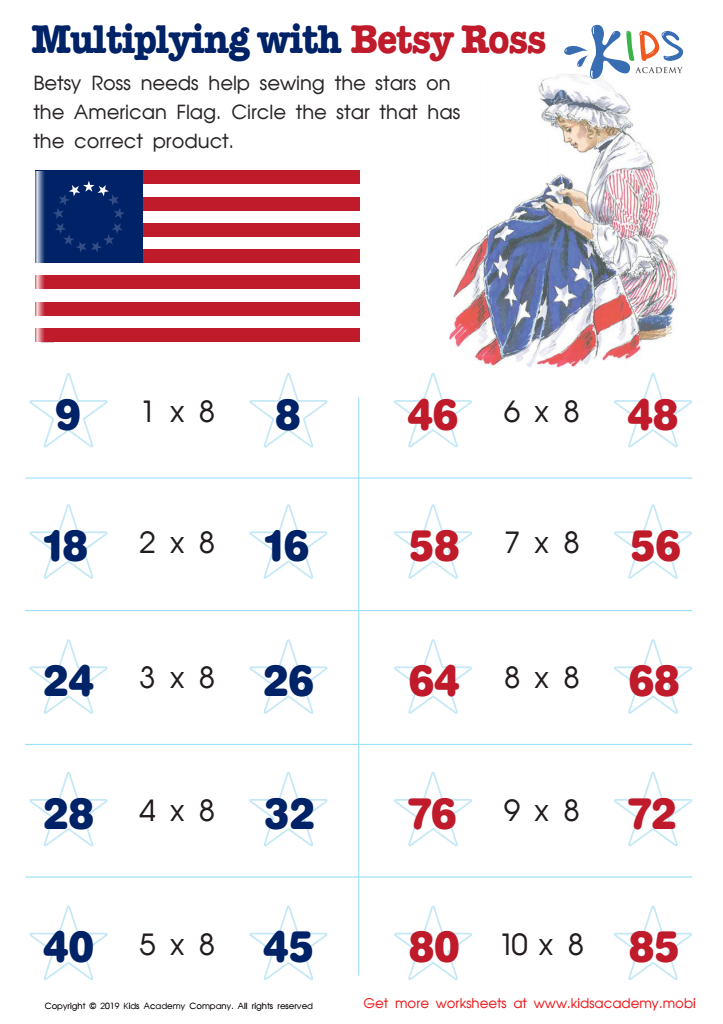

Multiplying with Betsy Ross Worksheet
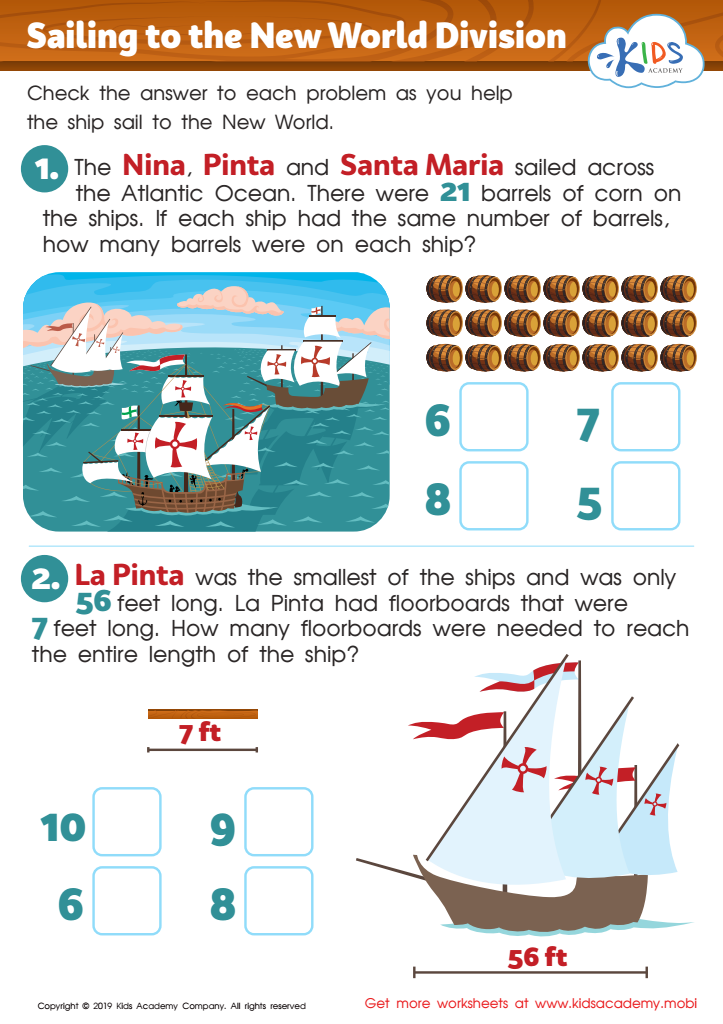

Sailing to the New World Division Worksheet
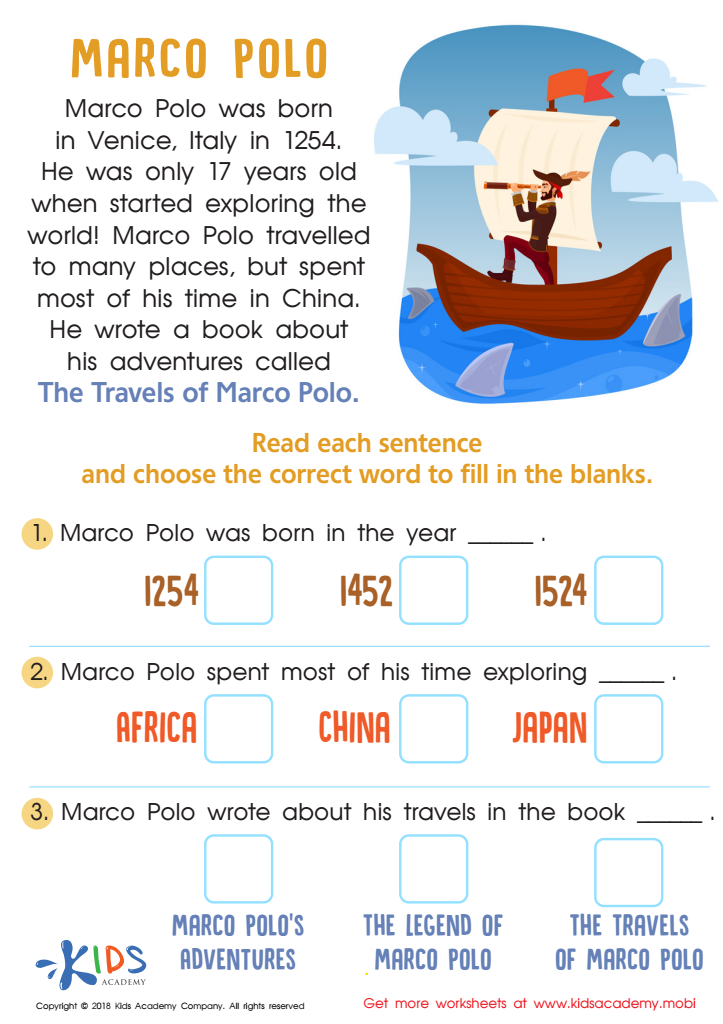

Marco Polo Worksheet
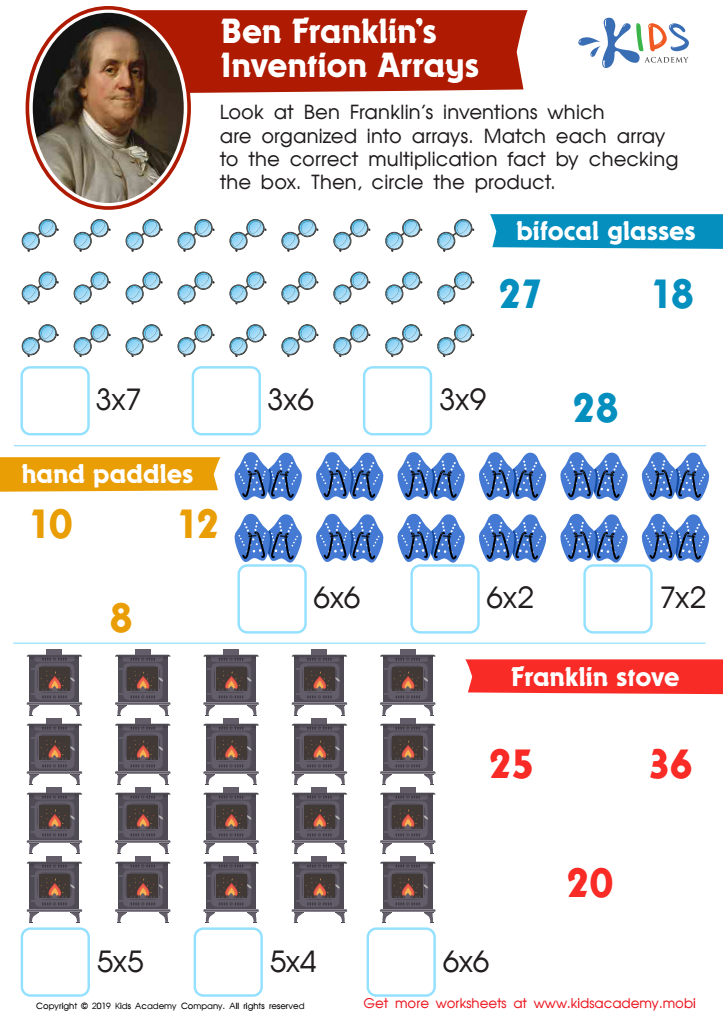

Ben Franklin’s Invention Arrays Worksheet
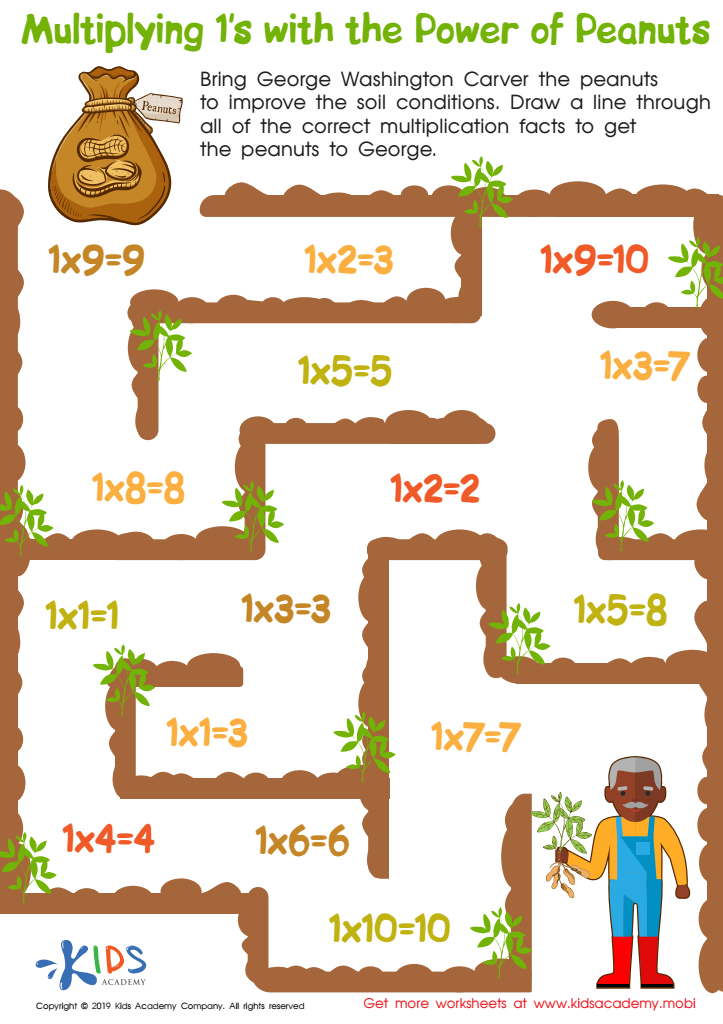

Multiplying 1’s With the Power of Peanuts Worksheet
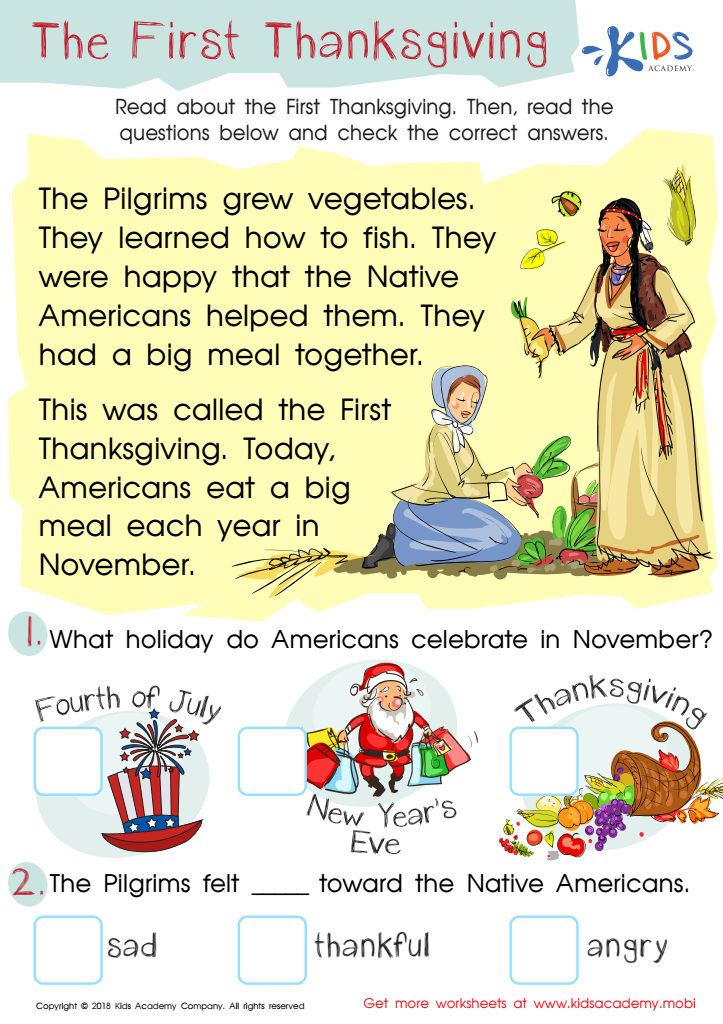

Assessment: First Thanksgiving Worksheet
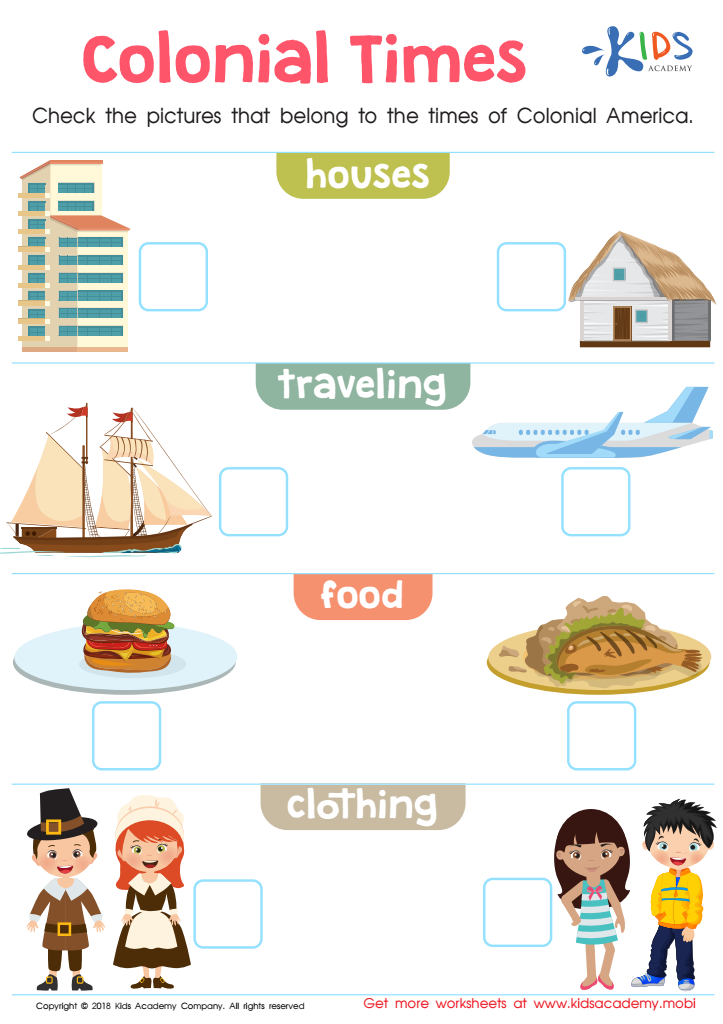

Colonial Times Worksheet
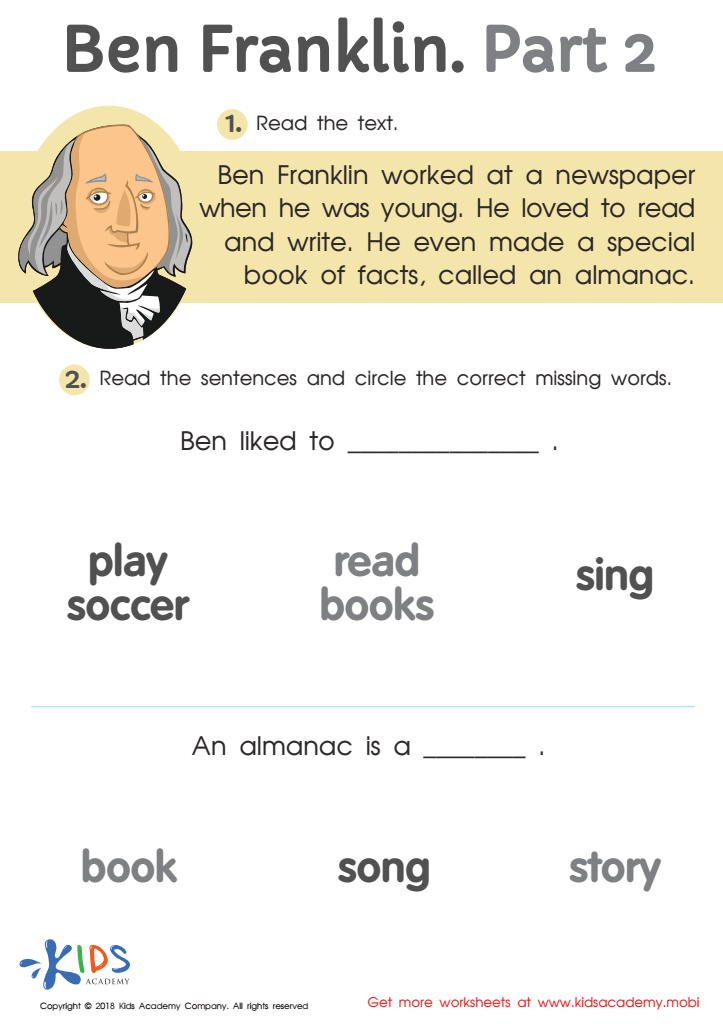

Ben Franklin Part 2 Worksheet
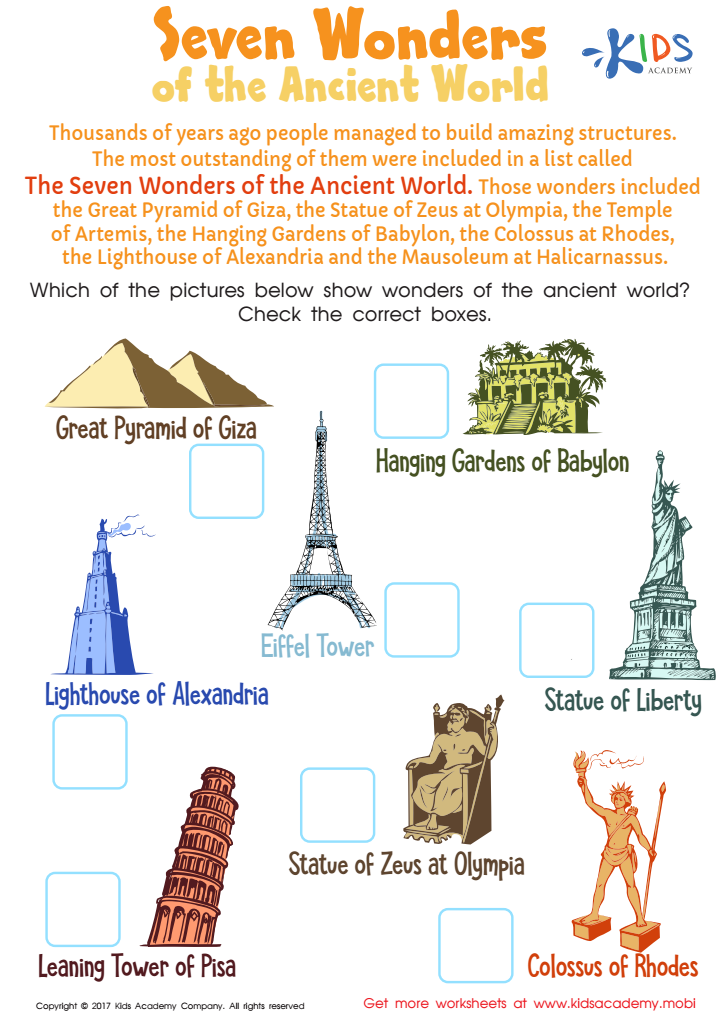

Seven Wonders of the Ancient World Worksheet
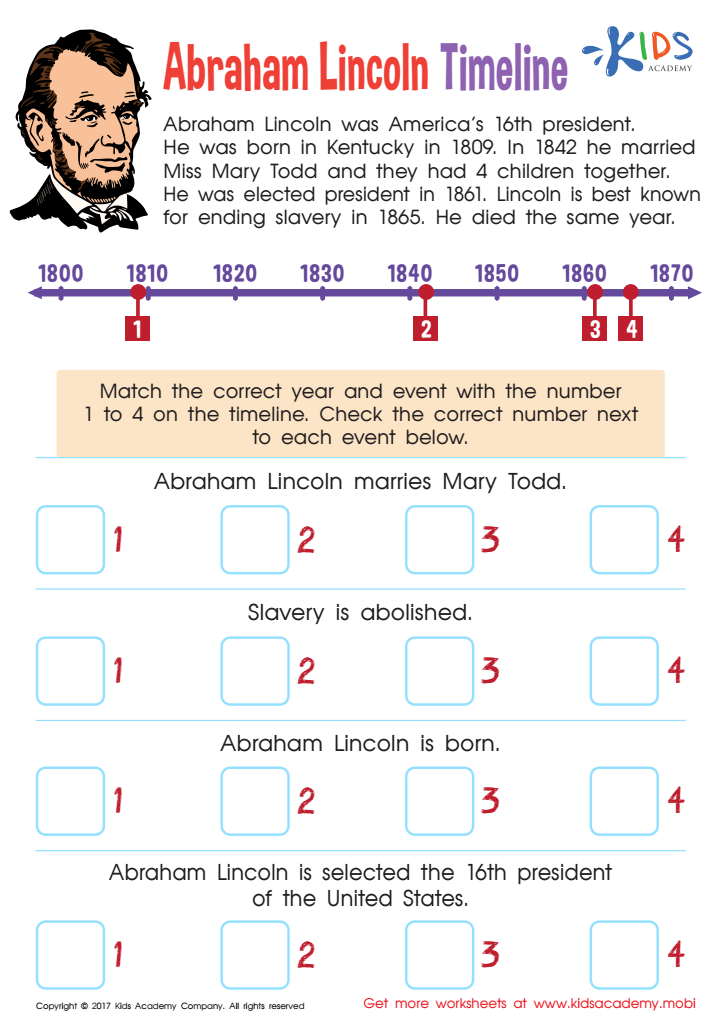

Abraham Lincoln Timeline Worksheet


Gandhi Worksheet
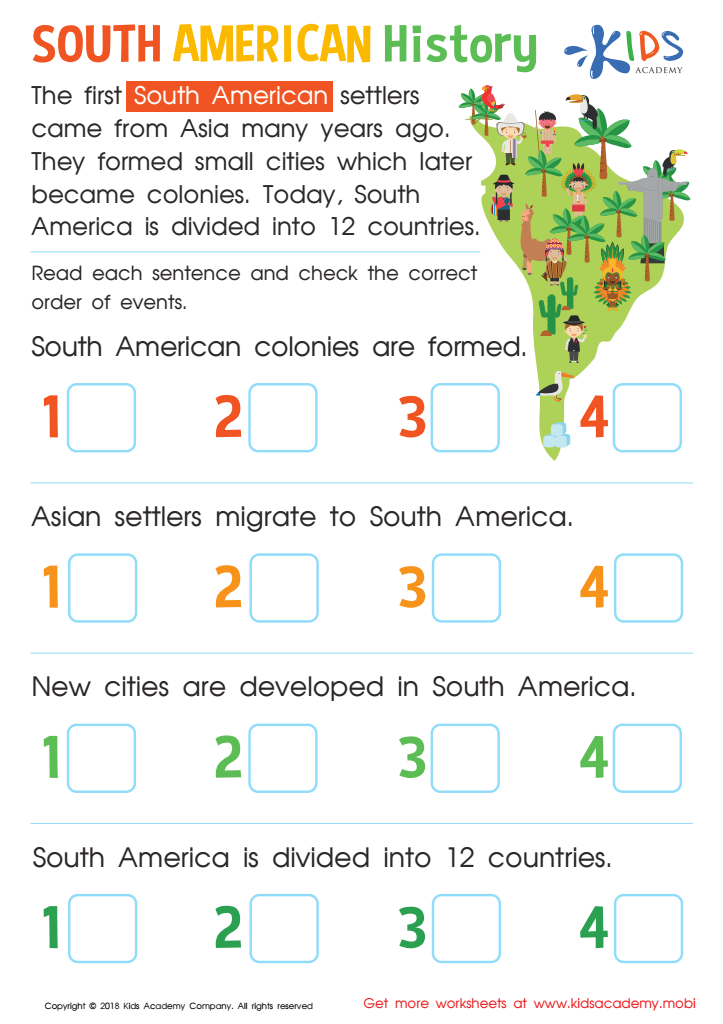

South American History Worksheet
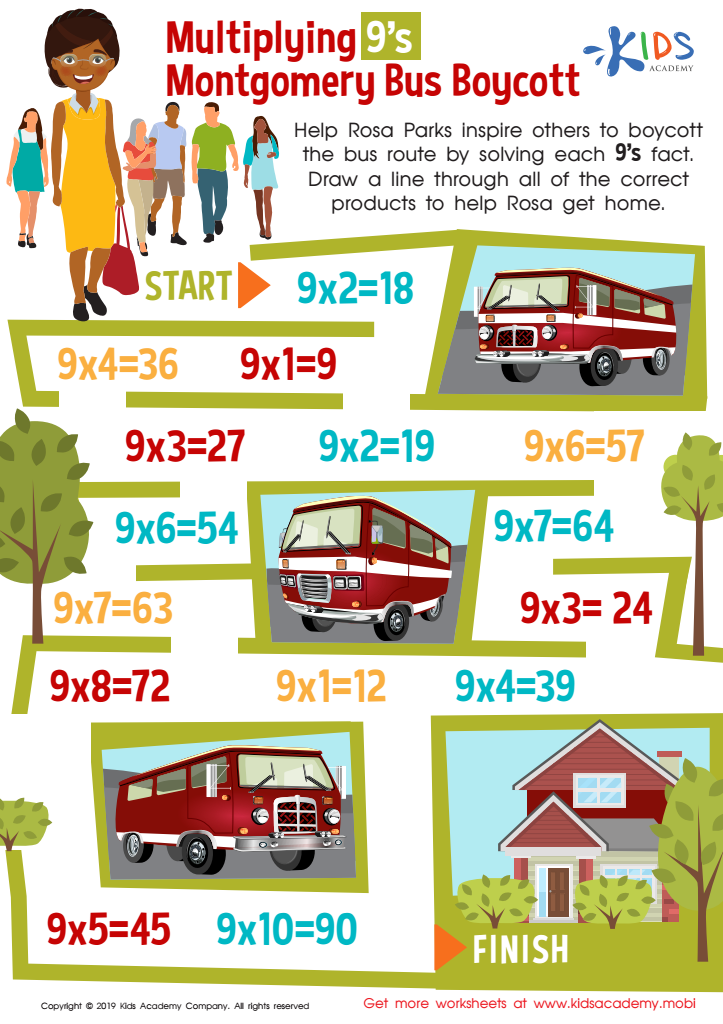

Multiplying 9’s Montgomery Bus Boycott Worksheet
Parents and teachers play a pivotal role in shaping the perceptions and understanding of children aged 3-8. Introducing normal history to young learners is vital for several reasons. First, it helps them develop a sense of identity and belonging. Understanding the world and their place in it fosters self-confidence and a positive self-image. Second, normal history introduces essential concepts of time, sequence, and cause-and-effect, laying a foundation for critical thinking and future learning.
Also, studying history nurtures empathy and cultural awareness. Learning about diverse people, places, and events helps children appreciate differences and similarities among cultures, promoting inclusivity and respect. This can combat prejudice and build a more harmonious society from the ground up.
Moreover, early exposure to history enriches vocabulary and language skills through storytelling, enhancing communication abilities that are fundamental for academic success. Children who know history can better understand contemporary issues, leading to informed and responsible future citizens.
Finally, integrating history with art, music, and literature can make learning engaging and fun, fostering a lifelong love for learning. In essence, teaching normal history to young children is not just about recounting past events but shaping informed, empathetic, and intellectually curious individuals.
 Assign to My Students
Assign to My Students















